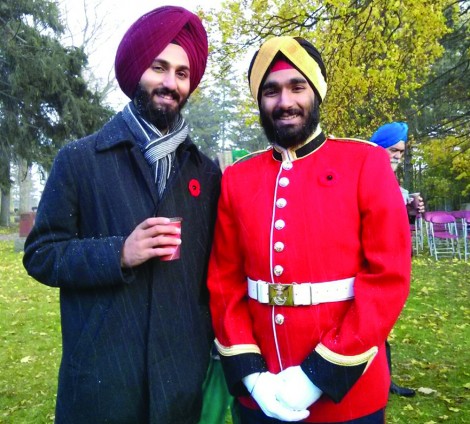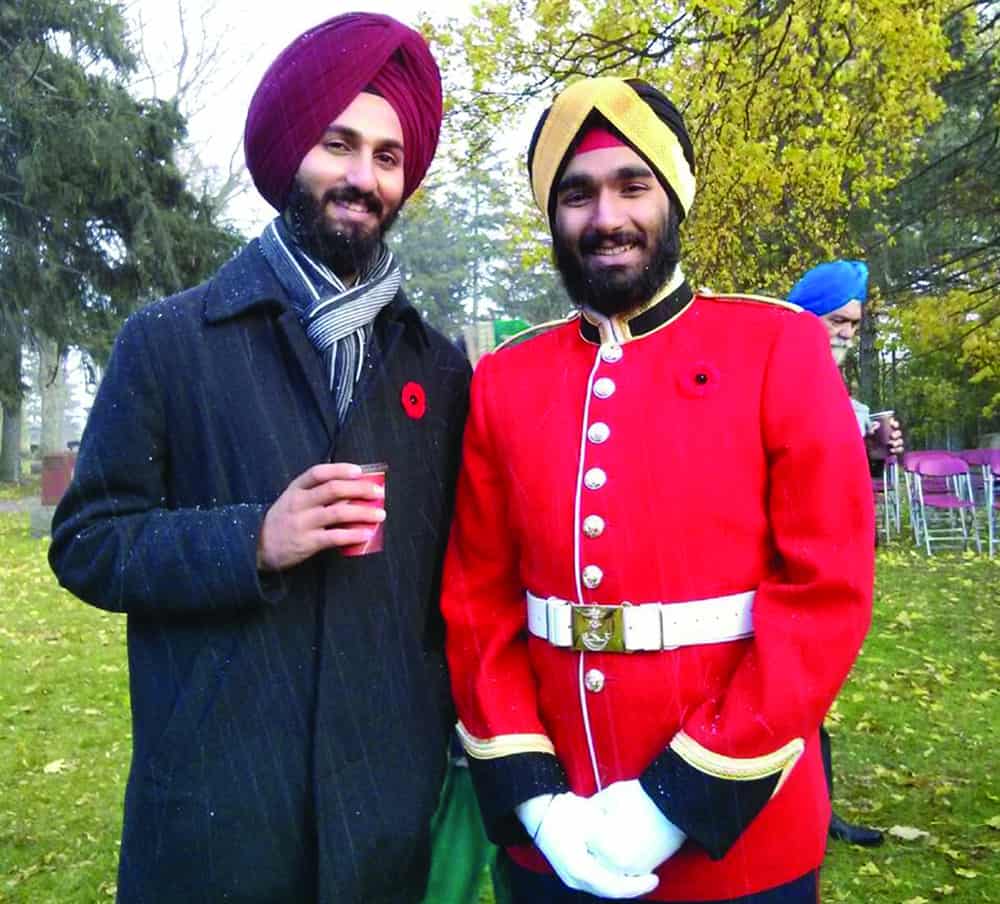This summer, when Brigitte Frot, director-general of the Quebec Soccer Federation, said: “[Sikh children wearing turbans] can play in their backyard. But not with official referees, not in the official rules of soccer. They have no choice.” She portrayed the Sikh Canadian community as outsiders, inspite of its proud and tireless contribution to this great nation for the past century. But this mindless statement was not the end of this controversy — soon came Quebec Premier Pauline Marois’s Charter of Values, which seeks to ban all public servants from wearing religious clothing — including hijabs, turbans, and kippas. If the bill is passed, many Quebecers, including Sikh public servants, will have to make an unfortunate choice between their work and their religion.

Stories like those of Buckam Singh reflect Canada’s rich immigrant history. PHOTO COURTEST: U OF T SIKH STUDENTS’ ASSOCIATION
In times like this, it becomes crucial for communities to seek stories that provide inspiration to move forward and attempt to find commonalities in our history. One such story is that of Private Buckam Singh, a Sikh pioneer who fought for Canada in World War I. Singh emigrated from Punjab at age 14 in 1907, and worked on farms in British Columbia and Ontario. This was a time when anti-immigration groups rioted throughout Canada, beating and looting immigrants. The government soon after effectively banned all immigration from India. Sikh immigrants were not allowed to bring their families along, were unable to vote, and were only allowed to work low-skill manual labour jobs, regardless of their work experience or educational background.
Despite not being treated as an ordinary Canadian citizen, Singh saw much hope in his adopted country. Thankful for all that Canada had given him, he enlisted in the twentieth Infantry Battalion of the Canadian Expeditionary Force in 1915. Like the thousands of Sikhs from India fighting on behalf of the British Empire, he soon found himself fighting in France. He received severe wounds to the head in June 1916 during the Battle of Mont Sorrel. Recovering in three weeks, Singh joined the war effort again. Less than a month later, however, he was wounded in combat again and sent to No. 3 Canadian General Hospital. The hospital was run by none other than University of Toronto graduate and poet, Lieutenant Colonel John McCrae, who wrote the famous poem In Flanders Fields.
In England, after recovering from his injuries, Singh contracted tuberculosis and was sent back to Canada. He spent a year in Kitchener’s Freeport Hospital and died on August 27, 1919. He was buried in Kitchener’s Mount Hope Cemetery by the military, without any family around him. The recent discovery of his Victoria Medal by historian Sandeep Singh Brar has provided the Sikh Canadian community an incredible hero to be proud of.
Buckam Singh’s story has helped Sikh Canadians unite two seemingly distinct histories and be proud of their contribution to protecting the freedom of this country. Attending the Remembrance Day Ceremony in Kitchener with the Sikh Students Association this weekend, it was heartwarming to see young Sikh boys and girls drawing inspiration from Buckam Singh’s story, ready to fight against injustice and inequality in the world. When they read In Flanders Fields, they are reminded of not only the Canadian contribution to the war, but also that of Singh: a proud immigrant.
Singh set the ball rolling for a multicultural society that celebrates its differences. Canada has changed immensely for the better since 1907, a time when Sikh immigrants were not even considered to be citizens to a country where Sikhs pride themselves in wearing the turban while serving in the Royal Canadian Mounted Police and the Canadian Armed Forces in Afghanistan, among other peacekeeping missions.
As Canadians, we are at an important juncture where we must reflect on our accomplishments and move forward to a country that continues to be equitable for all. Québec’s new Charter of Values does little more than institutionalize prejudice by ostracizing minority groups, and is a direct insult to the decades of contributions from immigrant communities to Canada. This is not the time to move backwards and undo the great battles that our ancestors have fought to make our great society the envy of every nation in the world.
Anamjit Singh Sivia is a second-year student studying engineering, as well as the Global Affairs Coordinator for the University of Toronto’s Sikh Student Association.


